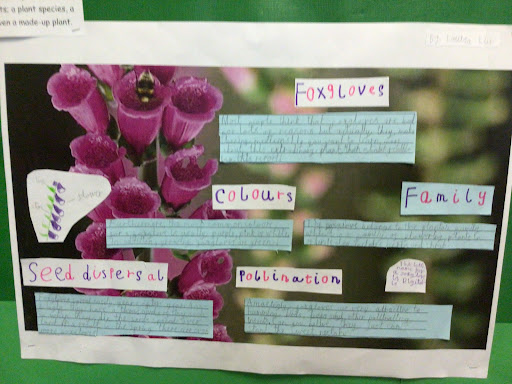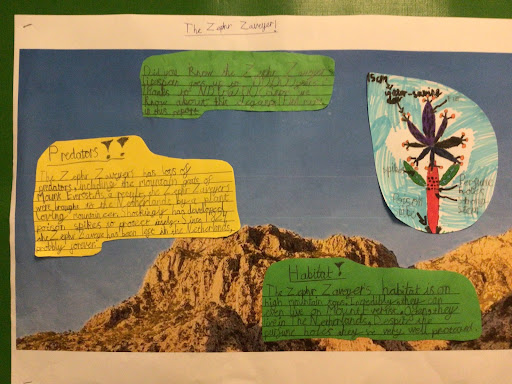
Motivating learners
Published on 24/03/23
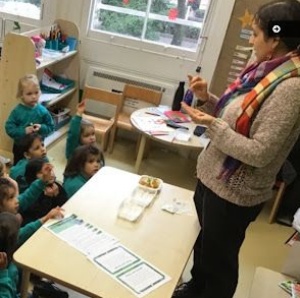
Young children love spotting things in nature. Their curiosity and instinct to discover leads them to follow a ladybird and use a stick to dig in the mud.
The children often arrive at school in the mornings with a natural object that has caught their attention and they want to share with their classmates. Just today the children arrived holding an interesting stone, daffodil flower and ‘the best pine cone ever’.
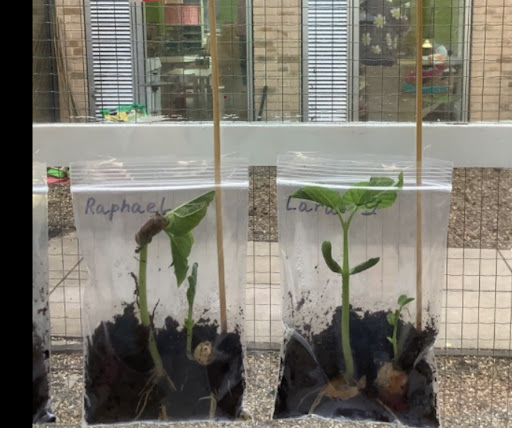 When planning our topics for the children’s learning it is important to know the children’s interests and to use this knowledge to capture their attention and to motivate them in their learning. Each year we have a topic that gives the children time to explore the natural world. This year our ‘Plant It’ topic began with a trip to Scotsdale Garden Centre for the children to decide which herbs they wanted to grow in their school gardens. In the preceding weeks cress seeds, beans, strawberry plants and indoor plants have been watered, repotted and cultivated and there are certainly lots of new seedlings sprouting around the school gardens. The simplicity of planting and seeing the results of their efforts is really inspiring for young children. The learning experience is positive and memorable for them and they often do not realise they are learning.
When planning our topics for the children’s learning it is important to know the children’s interests and to use this knowledge to capture their attention and to motivate them in their learning. Each year we have a topic that gives the children time to explore the natural world. This year our ‘Plant It’ topic began with a trip to Scotsdale Garden Centre for the children to decide which herbs they wanted to grow in their school gardens. In the preceding weeks cress seeds, beans, strawberry plants and indoor plants have been watered, repotted and cultivated and there are certainly lots of new seedlings sprouting around the school gardens. The simplicity of planting and seeing the results of their efforts is really inspiring for young children. The learning experience is positive and memorable for them and they often do not realise they are learning.
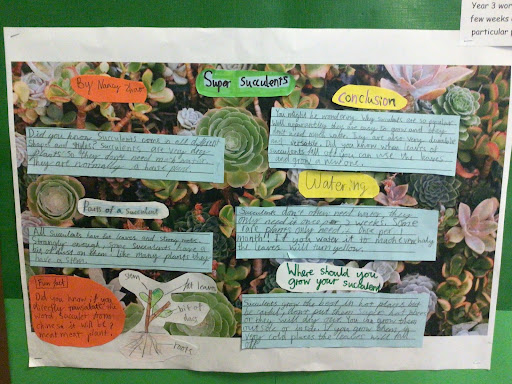 Harnessing the children’s interests and using knowledge of their stage of development continues to be used when planning learning experiences in our Junior School. At age 7 and 8 years old children want greater independence; they begin to develop self awareness and maturity and need more opportunities to show their independence. In our Year 3 classes the children have also been learning about plants in their Science lessons. No longer captivated by noticing nature around them they are motivated by having the freedom to choose what they want to learn about. A research project gives them the independence to choose a plant and to decide what information and interesting facts they want to share about the plant. The care and attention in their final posters demonstrates their motivation and the knowledge they have gained through the task.
Harnessing the children’s interests and using knowledge of their stage of development continues to be used when planning learning experiences in our Junior School. At age 7 and 8 years old children want greater independence; they begin to develop self awareness and maturity and need more opportunities to show their independence. In our Year 3 classes the children have also been learning about plants in their Science lessons. No longer captivated by noticing nature around them they are motivated by having the freedom to choose what they want to learn about. A research project gives them the independence to choose a plant and to decide what information and interesting facts they want to share about the plant. The care and attention in their final posters demonstrates their motivation and the knowledge they have gained through the task.
As these examples show, fostering a love of learning and enthusiasm for school requires teachers to have an in-depth knowledge of the children in their classes and to be responsive to what the children are showing and telling their teachers.
Sarah Holyoake – Head of Early Years
